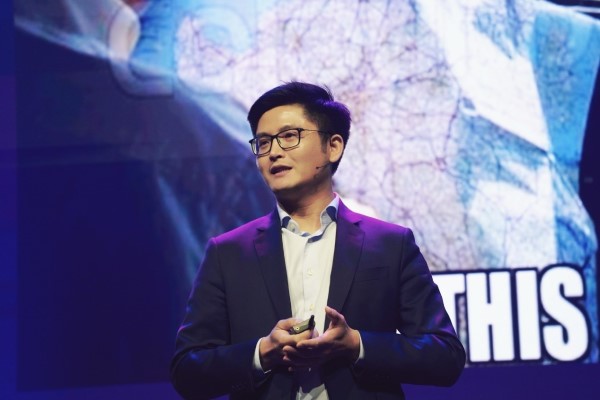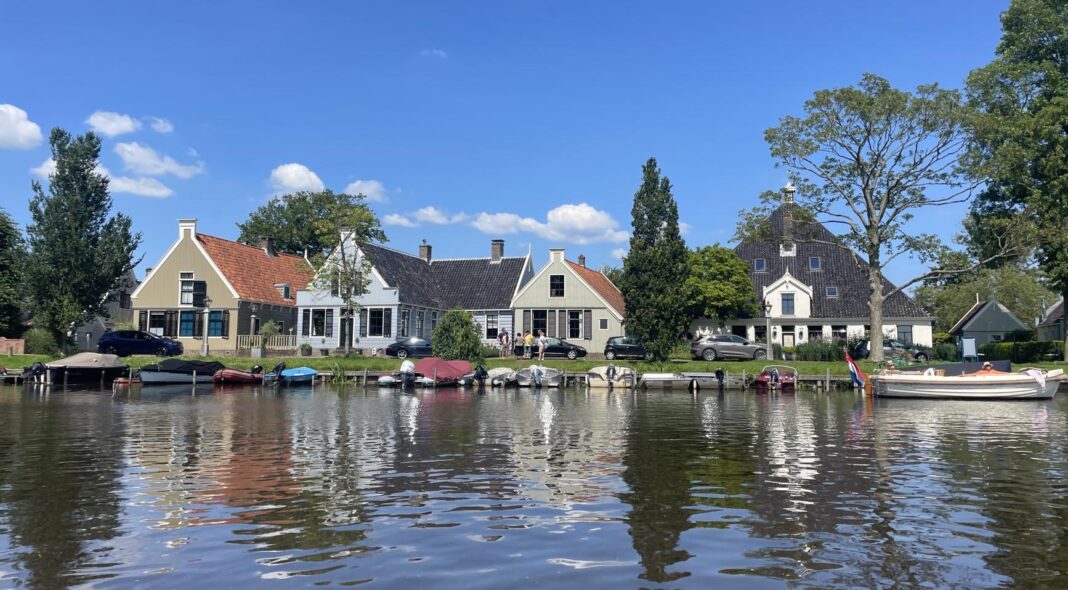Event | Mobile World Congress, Barcelona
Every IT or telecomurs collectively embraces a theme. Everyone had it last year during the Mobile World Congress in Barcelona about Smart Cities, WiFi7 and 6G, now it was AI that made the clock. Yet not everything changed. Even now, the Chinese manufacturer Huawei seized a large part of the prominent hall 1.
Despite the shiny white stands and Chinese eating on the garden terrace, Huawei is a supplier that is not undisputed. Therefore, the COO of Huawei Nederland, Gert-Jan van Eck, and Victor Qian, CEO of Huawei for the Benelux and Ireland, answer questions from Computable about the political discussion about the use of Huawei equipment.
And not for nothing: the triangle vs, China and Russia controls world news. Of course there are also numerous manufacturers in Barcelona – think of German firms such as AVM and Lancom – who are proud of their ethical standards in the field of privacy and compliance. But unlike earlier, distrust in the market has grown into the collective of (non-European) technology. That distrust goes much further than the products from China.
Rack
Although Van Eck and Qian definitely take a clear position in the course of the conversation, Van Eck opens with a fairly neutral statement. “It is an interesting time in which we live and as a Huawei we try to contribute as much as possible to the European and Benelux community with the solutions that we can offer.” Huawei has been doing this in the Netherlands for twenty years, namely since Marcel Boekhoorn and Ton on the Stegge on behalf of Telfort with the Chinese supplier. Those times seem over for a long time, although Europe is still the most important market for the supplier outside of China. At the opening of the Techhub in The Hague of the Dutch provider Odido, it was emphatically stated that the ‘European Ericsson’ was their most important technology partner.
“Not anymore, to be honest,” Gert-Jan van Eck replies to the question of whether political developments affect his night’s sleep. ‘It is a complex environment in which we work. Our industry is currently politized and we object to precisely the politicization of industry. This is not just about technology, but also about security. We do not believe that politicizing security helps to make systems and community resilience. “
Huawei therefore focuses on technological solutions to support networks and industries. “We want to make the industry as part of a complete, larger ecosystem, safer,” Van Eck explains. “We build standards together with the industry and by doing that, we think we can contribute and continue to contribute to the European market.” Despite the complexity of the geopolitical situation, Huawei knows how to find his place and further develop within Europe, says De Coo. ‘Many countries have found a balance between safety measures and an open, innovative market. But I am the first to admit that it is complex. “
Interest
When asked about the interests of the United States for the commercial activities of Huawei, Van Eck is clear: “That interest is not there that we are not active there.” The consumer market offers, as De Coo indicates a different picture: it can also be seen at the Barcelona stand that Huawei (again) with a wide range of consumer products, such as laptops and wearables, comes to the European continent.

This is for Victor Qian, CEO of Huawei Benelux and Ireland, the moment to interfere in the conversation. He emphasizes the long presence of Huawei in Europe and the efforts in the field of cyber security. “Huawei has been working in Europe for more than twenty years, including in the Netherlands, Belgium and Luxembourg.” He points out that Huawei is under stricter international control than many other companies: ‘No radical incident has been reported when it comes to our activities or products. In fact, if Huawei products had back doors, that would immediately lead to international stir. Everyone looks at us through a magnifying glass. “
Huawei works, Qian works intensively with European partners to achieve the highest cyber security standards. “Cyber security is more than just a technical subject,” he says. “It’s not just about technology, but also about processes and cooperation with industry.”
Qian acknowledges that political discussions can affect the perception of Huawei’s strategy and products, but emphasizes that the focus remains on innovation and cooperation. ‘Sometimes I also make jokes about it myself. If we had alien technology with which we could get data outside of Europe without experts noticing this, how would that be possible? How could we do that unnoticed? “
Smart
In addition to cyber security and network infrastructure, Huawei also plays a role in the development of smart cities. Huawei paid a lot of attention to this during earlier editions of the Spanish telecomic event. How is the situation now? “That theme is still important,” says Van Eck. ‘Our digital twin technologies are used for cities, airports and ports. We are therefore active in optimizing human and goods flows. ” He mentions the Amsterdam Arena in the Netherlands as an experimental environment where new digital applications are being tested to offer extra services, such as sending visitor flows.
Ten adds that digitization of cities is not done in one click. “Each service within a city is digitized separately.” He mentions an example from China where traffic lights API are integrated with navigation systems and taxi services. ‘With your navigation or taxi app you can see exactly how long you have to wait for a red light and how traffic flows develop, that translates directly into the Estimated Time of Arrival. ” These types of smart technologies are increasingly being integrated into modern urban environments.
Huawei and corruption
The above interview has been conducted before it news It came out that the Belgian police started a corruption investigation into Huawei and has made various raids with lobbyists from the Chinese tech company. They are suspected of paying bribes to MEPs to look after Huawei’s interests.
In a response, the Chinese IT company says about this: ‘Huawei takes these allegations seriously and communicates with the researchers to further understand the situation. Huawei uses a zero-tolerance policy with regard to corruption or other abuses, and we commit ourselves to comply with all applicable laws and regulations at all times. “




